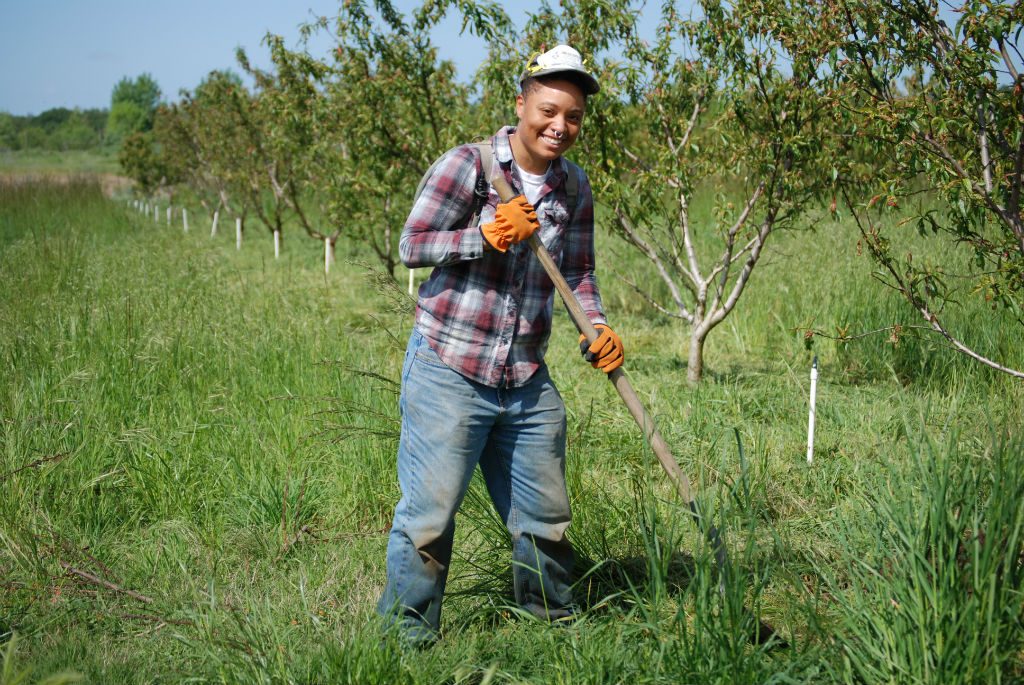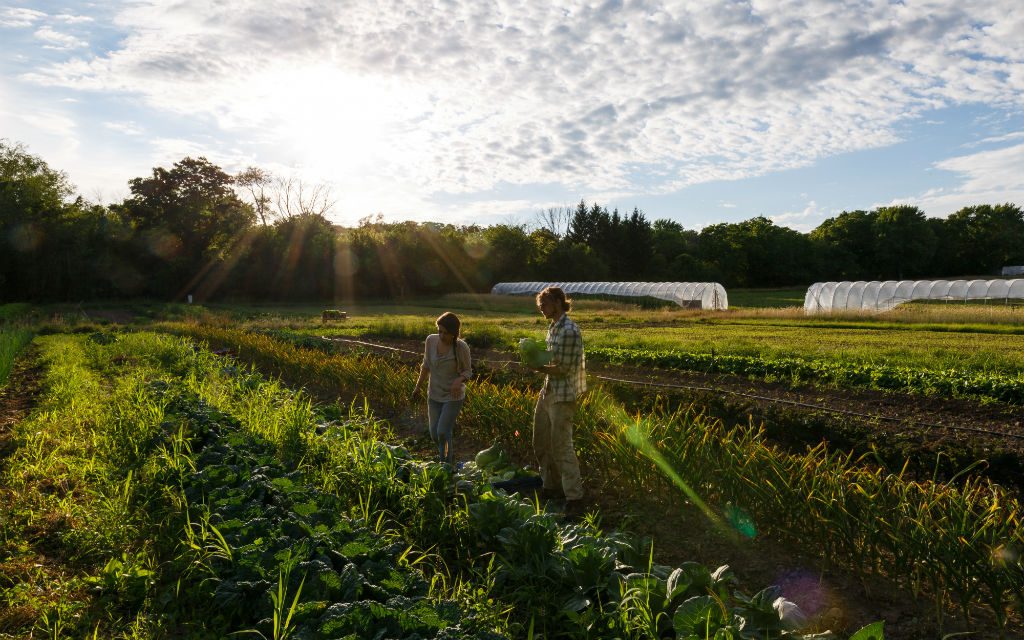
Staying Healthy While Growing Healthy Food
The Affordable Healthcare Act has been a political hot potato. The debates are heated, and the rhetoric is heavy. For small, independent farmers, however, it’s a matter of survival. At the FruitGuys Community Fund, we’re passionate about supporting small farms and agricultural nonprofits so they impact our environment, local food systems, and farm diversity. Let’s explore the issue and the impact of affordable healthcare to those who grow the organic food we love and crave.
Farming & Healthcare
According to the U.S. Department of Labor, agriculture ranks among the most dangerous industries. The fatality rate for farm workers is seven times the average of other industries. Every day over 200 agricultural workers are seriously injured on the job causing them to lose time at work; sadly 5% of those injuries are permanent.
While corporate-operated farms may provide health insurance to their workers, small and independent farmers must secure their own insurance policies either through assistance programs like Medicaid or Obamacare. And based upon the 2017 National Farmer and Rancher Survey, 73% of farmers and ranchers report that health insurance is an important risk management strategy.
In a July 2017 Bloomberg article, reporter Deena Shanker shares the stories of several small farmers and the effect of having no insurance or dealing with rising costs of healthcare. Many small farms are land-rich but cash poor. Nearly 75% of farmers aged 18 to 64 had to take off-farm jobs in order to earn extra income to pay for insurance premiums or to gain access to health benefits.
The Cost to Independent & Organic Farms Affect Us All
We know that access to healthy and organically grown produce is good for us. We rely on independent organic farms to supply our local farmers markets and community supported agriculture (CSAs). Yet it’s getting more difficult for our local producers to get insurance. As premiums continue to rise, so will our food prices. And for those unfortunate to suffer a catastrophic health event, they’ll fade away from local markets resulting in fewer organic choices.
To put things into perspective, here are some numbers from HIREDnAg, a group dedicated to researching and understanding how health insurance decisions impact farm and ranch families:
- 64% of farmers and ranchers report they have a pre-existing condition.
- With the average age of a farmer at 58, they are more vulnerable to age-rating insurance bands.
- 52% of farmers are not confident they could pay for a major illness such as heart attack, cancer, or farming accident without going into debt.
- 45% of farmers are worried that they’ll need to sell off sell farm assets (e.g., equipment, land, livestock) to cover the costs of a major illness or long-term care without amassing debt.
- 41% of young farm and ranch families (between 18-34) enrolled in public insurance programs such as Medicaid, Tricare, or CHIP.

The Next Generation of Farmers
Young farmers are typically strong and healthy. So why would the repeal of ACA hit them hardest?
While it’s true they have age on their side, young and those farmers just starting out need health insurance for several reasons. First, as the Department of Labor points out, farming is dangerous work. Even without accidents, farming is hard, physical labor that takes it toll on the body.
Second, young farmers also have young children who need wellness checkups, vaccinations, and access to care when they get sick with colds and flu.
Third, young farmers are typically low-income earners. Succession issues are a growing concern. The next generation can’t afford to buy land to farm it, especially if older farmers need to sell for retirement, failing health, or long-term care needs.
How You Can Help
The FruitGuys Community Fund supports small and independent farmers and ranchers so they can preserve and enhance their way of life. We respect their autonomy and need to make a good living from farming. That’s why our grants encourage sustainability, biodiversity, and resource management.
You can be a part of this movement by getting involved:
- Donate funds that help small farms and ranches.
- Volunteer your time to help spread the word and review our grant applications.
- Voice your opinion to support farmers with your local and state legislators. The fight to provide affordable healthcare isn’t over.
Together we all can make a difference.




